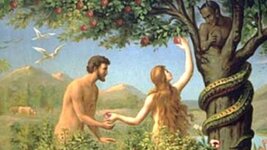New thread, continued from this one...
Brothers in Christ,
As we enter 2025, let us come together with a shared goal: to deeply study and reflect on key books of the Bible.

The plan is to read a few chapters every couple of days, allowing time for reflection and discussion before moving to the next portion.
Here’s our proposed reading plan for the year:
January: Genesis (1–25)
February: Genesis (26–50)
March: Exodus
April: John
May: Proverbs
June: Acts
July: 1 Samuel
August: Ecclesiastes
September: Romans
October: Daniel
November: Hebrews
December: Luke
This plan is flexible. At the end of February, we can reevaluate the pace. If we find it too ambitious for meaningful discussions, we’ll can swap longer books (like Exodus) for shorter ones. For now, let’s commit to this schedule until the end of February.

January & February Reading Breakdown
January: Genesis (Chapters 1–25)
Jan 1: Genesis 1–2
Jan 3: Genesis 3–4
Jan 5: Genesis 5–6
Jan 7: Genesis 7–8
Jan 9: Genesis 9–10
Jan 11: Genesis 11–12
Jan 13: Genesis 13–14
Jan 15: Genesis 15–16
Jan 17: Genesis 17–18
Jan 19: Genesis 19–20
Jan 21: Genesis 21–22
Jan 23: Genesis 23–24
Jan 25: Genesis 25
February: Genesis (Chapters 26–50)
Feb 1: Genesis 26–27
Feb 3: Genesis 28–29
Feb 5: Genesis 30–31
Feb 7: Genesis 32–33
Feb 9: Genesis 34–35
Feb 11: Genesis 36–37
Feb 13: Genesis 38–39
Feb 15: Genesis 40–41
Feb 17: Genesis 42–43
Feb 19: Genesis 44–45
Feb 21: Genesis 46–47
Feb 23: Genesis 48–49
Feb 25: Genesis 50
Our first reading kicks off on January 1. May God bless and guide us as we journey together through His Word.
I'm putting out a feeler to see if anyone is interested in starting a Bible-in-a-year study group next year. The plan would include daily readings, with an opportunity to share insights, discuss what resonates, and ask questions together.
- Bizet
- Replies: 20
- Forum: Christianity (General)
Brothers in Christ,
As we enter 2025, let us come together with a shared goal: to deeply study and reflect on key books of the Bible.

The plan is to read a few chapters every couple of days, allowing time for reflection and discussion before moving to the next portion.
Here’s our proposed reading plan for the year:
January: Genesis (1–25)
February: Genesis (26–50)
March: Exodus
April: John
May: Proverbs
June: Acts
July: 1 Samuel
August: Ecclesiastes
September: Romans
October: Daniel
November: Hebrews
December: Luke
This plan is flexible. At the end of February, we can reevaluate the pace. If we find it too ambitious for meaningful discussions, we’ll can swap longer books (like Exodus) for shorter ones. For now, let’s commit to this schedule until the end of February.

January & February Reading Breakdown
January: Genesis (Chapters 1–25)
Jan 1: Genesis 1–2
Jan 3: Genesis 3–4
Jan 5: Genesis 5–6
Jan 7: Genesis 7–8
Jan 9: Genesis 9–10
Jan 11: Genesis 11–12
Jan 13: Genesis 13–14
Jan 15: Genesis 15–16
Jan 17: Genesis 17–18
Jan 19: Genesis 19–20
Jan 21: Genesis 21–22
Jan 23: Genesis 23–24
Jan 25: Genesis 25
February: Genesis (Chapters 26–50)
Feb 1: Genesis 26–27
Feb 3: Genesis 28–29
Feb 5: Genesis 30–31
Feb 7: Genesis 32–33
Feb 9: Genesis 34–35
Feb 11: Genesis 36–37
Feb 13: Genesis 38–39
Feb 15: Genesis 40–41
Feb 17: Genesis 42–43
Feb 19: Genesis 44–45
Feb 21: Genesis 46–47
Feb 23: Genesis 48–49
Feb 25: Genesis 50
Our first reading kicks off on January 1. May God bless and guide us as we journey together through His Word.




